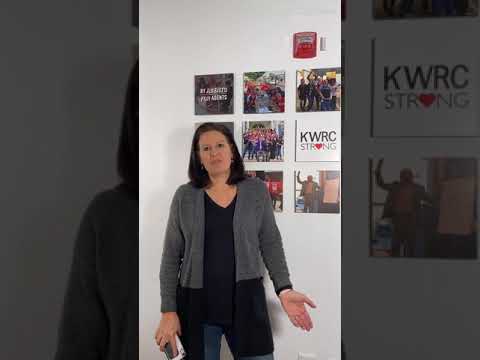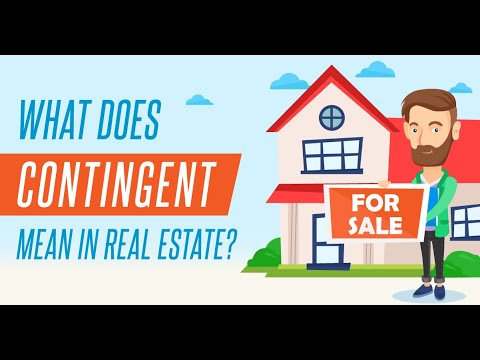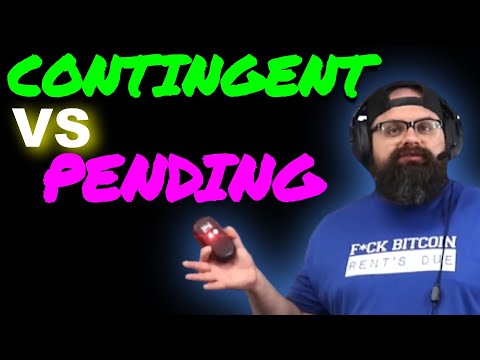Understanding the Nuances of ‘Pending vs Contingent’ in Real Estate Transactions
Navigating the world of real estate deals can often feel like trudging through a murky swamp of industry jargon. Two of the terms that frequently surface in property listings are ‘pending’ and ‘contingent.’ Unfortunately, misunderstandings about these terms can lead to dashed hopes for prospective buyers and a whirlwind of confusion for sellers. But fret not. In this article, we will unravel the meaning of “pending vs. contingent” in property transactions in crystal clear language.
A Deep Dive into the Meaning of ‘Pending vs Contingent’
The game of real estate transactions is all about timing. You have to know when to jump in and when to hang back. This is where understanding the meaning of ‘pending’ and ‘contingent’ becomes critical.
Insight into Pending Status
Let’s break it down. Imagine finding the home of your dreams, only to discover that the listing status reads ‘pending.’ A typical reaction would be, “Darn! Just my luck. I guess it’s off the market already.” Well, not so fast, my friend!
Pending means that the house is indeed one step closer to being sold, but it hasn’t crossed the finish line just yet. Not only have the buyer and seller agreed on terms, but all contingencies, such as mortgage approval or home inspection, have been met. That’s like moving from a casual chat about the Reebok Nano to actually getting those high-performance trainers on your feet! However, until the legal paperwork is completed and keys have been handed over, the deal isn’t entirely sealed. Thus, the status remains ‘pending’.
Clearing Up Contingent Status
Now, let’s tackle ‘contingent.’ You might see this term and think, “So, it’s not pending, yet not active? Well, what werewolf zone is this?” Don’t worry, it’s a lot simpler than it seems. A ‘contingent’ status signifies that a buyer has made an offer, and the seller has accepted it. However, there are some conditions or contingencies (hence the name) that need to be met. This could include the buyer securing a mortgage, selling their current house, or the property passing a home inspection. It’s like the buyer and seller have agreed on a step dance, but they’re waiting for the band—third-party conditions—to start playing.
Contingent Vs Pending: How They Function in Real Estate
The essential difference between ‘contingent’ and ‘pending’ is the degree of certainty that the deal will be completed. With a contingent property, there’s a chance the deal could still fall through – imagine a jigsaw puzzle with a central piece missing. But with a pending transaction, all key aspects are in place, and unless a major hiccup happens, the sale is likely to proceed. It’s like the jigsaw puzzle is complete, barring some last-minute glueing and framing!

Interpreting and Navigating Contingent and Pending Statuses in Property Listings
Being able to differentiate between a contingent and a pending property listing can turn you into quite the savvy real estate shopper or seller. But how do you identify these statuses, and how should you respond to them?
Identifying a Contingent Listing
Imagine spotting a house online that you love. You enthusiastically click on the details and spot the word ‘contingent.’ Do you shrug and move on? Not necessarily. A home labelled as ‘contingent’ suggests the seller has accepted an offer, but the deal’s completion hinges on specific conditions. If those conditions aren’t met, the current buyer’s agreement could be nullified, and you might have a shot.
You might wonder, “how many square feet is the house?” or “how does the price compare to other homes in the area?” but the key question should also be, “What are the deal’s contingencies?” If they seem insurmountable—for instance, if the buyer needs to sell an expensive, poor-condition property before purchasing—this might be your golden opportunity.
Unpacking a Pending Listing
Stepping into the realm of ‘pending’ adds an extra challenge. A pending property signifies that all the deal’s conditions have been met, and the closing procedure is underway. It’s like seeing a delicious dessert being reserved at a restaurant. Although the individual might still decide not to order it, chances are you’ll have to pick something else from the menu.
However, never say never in real estate! If you’ve stumbled upon what could be your dream home and it’s listed as ‘pending’, don’t toss the idea just yet. Acquiring insights into why the deal might fall through and staying in touch with the seller’s agent could save the day if the table turns.

| Pending Home Listing | Contingent Home Listing | |
|---|---|---|
| Meaning | The seller and buyer have agreed on the terms of sale and are moving forward to closing. The conditions have been fulfilled, paperwork is mostly in place but the transaction hasn’t been completed. | The seller has accepted an offer, but they’ve chosen to keep the listing active in case certain contingencies aren’t met by the prospective buyer. |
| Offer Possibility | It’s less likely for a new offer to be considered as the sale is farther in process. However, you can still put in an offer, but it’s rarely considered unless the current sale falls through. | It’s possible for a new offer to be considered. This doesn’t guarantee a purchase but it can place you as the next in line should the initial sale fail. |
| Status | It is more secure as all contingencies have been met and both parties are planning to move ahead with the sale. | It is less secure as the sale is conditional upon meeting specific criteria. Continues being an active listing. |
| Ideal For | Buyers looking for a home where they are certain about transaction following-through. | Buyers willing to wait for certain contingencies to be met, or in hopes that the current deal does not go through. |
| Risk | Lower. The sale is expected to close barring unlikely circumstances. | Higher. The sale may not go through if the contingency is not met. |
Exploring Real-life Scenarios: Pending vs Contingent
By now, you should have an idea about the differences between a pending and a contingent status in a property listing. Beyond theory, though, let’s apply these concepts to real-world scenarios.
Case Study Analysis: Contingent and Pending Scenarios in Practice
Let’s take a closer look at two fictional but highly plausible examples.
Example 1: The Contingent Offer
Mr. Smith spotted a lovely cottage and instantly fell in love with it. He made an offer, which was promptly accepted by the seller. Fantastic, right? Well, yes, but keep in mind that the home Mr. Smith currently owns hasn’t been sold yet. The new deal is now contingent on the sale of Mr. Smith’s current house. If this deal doesn’t go through, the seller might reopen the listing or consider backup offers from others who are ready to pounce.
Example 2: The Pending Deal
On the other side of town, Ms. Johnson made an offer on her dream duplex. The seller accepted and—here’s the twist—all her contingencies have been met. She secured her mortgage, her home inspection was a breeze, and she’s ready to close the deal. The status of her bid now moves to ‘pending’. It’s almost a done deal—almost being the operative word here because until the paperwork’s dry, the game’s still on!
The Impacts of Contingent vs Pending Status on Buyers
Now, let’s switch gears and analyze how contingent and pending statuses can impact buyers. When a buyer encounters a ‘contingent’ status, it might appear as a roadblock but remember: a contingent listing could still become yours, given some resilience and strategic moves.
A pending status, on the other hand, does indeed imply a higher likelihood of the property changing hands. This status doesn’t entirely eradicate your chances but it does put them on thin ice. Nevertheless, in real estate, the key is to remain ready. A deal can collapse at the eleventh hour, opening up the opportunity you’ve been waiting for.
The Impacts of Contingent vs Pending Status on Sellers
For sellers, a contingent status could mean a longer wait. After all, it’s contingent on certain conditions being met, which could take time or might not materialize at all. However, a pending status implies the deal is almost over the line, barring a last-minute hiccup.
A seller needs to have a profound understanding of both these statuses to manage expectations correctly and facilitate a smooth transaction.

‘Under Contract vs Pending’: Understanding Additional Real Estate Jargon
As if ‘pending’ and ‘contingent’ weren’t enough, let’s step up the game with another term you might encounter—’under contract.’
Breaking Down ‘Under Contract’
The phrase ‘under contract’ simply implies that the buyer and seller have agreed on specific terms of the deal. It’s akin to shaking hands on a deal. The ‘contract’ here refers to the purchase agreement containing the deal’s terms and conditions. Once this agreement is signed, the buyer and seller are both, wait for it, ‘under contract’!
Making Sense of ‘Under Contract vs Pending’
Now, you might be wondering, “If ‘under contract’ means an agreement has been reached, how does it differ from ‘pending’?” Remember, in a pending deal, not only has the agreement been reached but also all contingencies have been cleared. Being ‘under contract’ doesn’t necessarily mean that all conditions have been met. “What Does active under contract mean?” you may ask. Well, when a property is ‘active under contract,’ it simply indicates that the seller has received an offer they’re pursuing, but it still allows for additional offers from interested buyers. It’s a soccer match where the lead has been taken but the game isn’t over!

Expert Opinions and Analysis: Pending vs Contingent
So, what do industry professionals and economists have to say about the roles of ‘pending’ and ‘contingent’ statuses in the real estate market?
Consultation with Industry Professionals: Realtors on ‘Contingent vs Pending’
Real estate agents emphasize the importance of understanding the nuanced real estate landscaped marked by these statuses. According to them, knowing the difference between a ‘pending’ and a ‘contingent’ listing can make all the difference in effectively navigating the home buying and selling process. Agents stress that while pending deals are one step closer to completion, it is not uncommon for contingent or even pending deals to fall through. Thus, a vigilant buyer or seller should monitor listings closely and be prepared to act whenever opportunities arise.
Economists’ Analysis of Real Estate Trends: How Pending and Contingent Statuses Influence the Market
Economists, on their part, note that ‘contingent’ and ‘pending’ statuses can offer insights into market trends. A high ratio of contingent to pending listings might signify a market favourable to buyers as it indicates many listed properties are awaiting deal completion. In contrast, a higher ratio of pending listings might indicate a sellers market where deals are closing at a high rate.

Beating the Odds: Making Smarter Buying and Selling Decisions Amidst Pending and Contingent Statuses
So, how do you outsmart the real estate market and make strategic decisions given these statuses? Let’s find out.
Strategies for Buyers Faced with Contingent and Pending Listings
Real estate is a daunting field, but with the right approach, you can navigate it to your advantage, whether you’re dealing with a contingent or pending listing. Here are some expert-backed strategies to consider:
Insights from Experienced Property Investors
Experienced property investors recommend maintaining open lines of communication with the seller’s realtor. This will ensure you’re immediately informed if there’s a change in status, and could be the difference between nabbing your dream home and missing out!
Moreover, they suggest considering making primary or backup offers on contingent listings, as these deals have a higher chance of falling through compared to pending ones.
Research Findings on Successful Purchasing Approaches
Studies indicate that buyers who are well-versed in real estate jargon and processes, including understanding the difference between ‘pending’ and ‘contingent,’ are more likely to succeed in property acquisition. Armed with this knowledge, they are better equipped to understand market conditions, interpret listing statuses, and make more informed decisions.
Seller Tactics for Managing Contingent and Pending Offers
Sellers too can leverage and manage their property’s status to attract the best deal possible.
Tips from Seasoned Home Sellers
Seasoned sellers advise using the ‘contingent’ status to test buyer interest. It offers a safety net to sellers, allowing them to accept better offers if they come along. On the other hand, a switch to the ‘pending’ status signals to potential buyers that the property is pretty much off the market. This encourages interested parties to make their best offer right off the bat.
Moreover, items like the duration of a listing and the fairness of the listing price can also influence the status of a property and its attractiveness to buyers. Sellers should carefully consider these factors to strategize their sales approach successfully.
Analysis of Effective Sales Strategies
Research confirms that providing clear information about a property’s status increases trust between sellers and potential buyers. Sellers transparent about their property’s pending or contingent status can foster an environment of trust — an invaluable currency in real estate.

Wrapping Up the Real Estate Rollercoaster: Demystifying ‘Pending vs Contingent’
The world of real estate is intricate and full of nuances, with ‘pending’ and ‘contingent’ statuses being just two components. However, understanding these terms can drastically ease your property buying or selling journey.
Lessons Learned: Reflecting back on the ‘Pending vs Contingent’ Complexity
As we conclude, let’s revisit what we’ve learned:
Emerging Trends: The Future of Contingent and Pending Statuses in Real Estate
As the future unfolds, we can expect these real estate statuses to continue playing significant roles in property transactions. Technologies like real-time tracking and AI prediction models may enhance the way these statuses are updated and interpreted, but their fundamental relevance will remain.
Ultimately, being aware of and understanding the ‘pending vs contingent’ dynamic is an absolute must for anyone serious about successfully buying or selling a property. It’s like mastering the rules of the game – without this knowledge, watching the game is very different from playing and winning it!
Is it better to be contingent or pending?
Phew, there’s a lot to unpack here, so let’s dive right in.
Why does a house sale go from pending to contingent?
Well, contingent and pending are just two sides of the same real estate coin. A contingent status basically tells you that the seller is willing to sell the house provided certain conditions are met, while pending implies that all contingencies have been addressed and the home is heading towards closure. So, it depends on your situation; contingent can give you some wiggle room, while pending brings you a tad closer to sealing the deal.
Can you put an offer on a house that is contingent?
A house sale can go from pending to contingent probably because some hiccups occurred during the final stages of the sale e.g. there were issues with the buyer’s financing or some last-minute glitches in the home inspections.
Can you still make an offer on a pending house?
While contingent contracts typically lock down a sale, you can in fact slip in with an offer on a house that’s contingent. This is what’s known as a “bump clause.” But, bear in mind that you’re essentially waiting in the wings, and the original deal has the potential to go through.
Why don’t sellers like contingent offers?
Yes, you can swing a bat at a house that’s pending. However, remember that pending basically means all the i’s are dotted and the t’s crossed, so it might be a long shot unless the current deal collapses.
How often do contingent offers fall through?
Contingent offers can be a pain for sellers, truth be told. It slaps a big old ‘if’ onto the sale, meaning that the deal’s success hangs on factors like buyer’s financing, home inspections, etc.
Does contingent mean sold?
How often contingent offers fall through, well, that’s a bit like trying to predict the weather. It’s not super common but it does occasionally happen.
Can seller accept another offer after accepting?
Now, contingent doesn’t exactly mean ‘sold’, it just means the sale is almost across the finish line on the condition that certain requirements are fulfilled.
Why not to accept a contingent offer?
Oh sure, a seller can accept another offer after accepting one. It’s called a backup offer. Just remember though, the first-offer buyer will have to step aside first.
How do you bump a contingent offer?
Accepting a contingent offer can mean a little more uncertainty and waiting for a seller. It’s not an outright ‘No Thank You’, but just involves waiting for certain conditions to be met.
Is it worth looking at a house that is contingent?
You can bump a contingent offer with a better, more promising offer. Sellers love options, right?
Should you look at contingent houses?
Check out a house that’s contingent? Absolutely! It’s worth a punt and who knows, the deal might fall through and you could be next up.
Can I outbid a pending offer?
Looking at contingent houses can be a win-win. You might find your dream home and if it’s contingent, you could bag it if the current deal doesn’t pan out.
How do you beat a pending offer?
Yup, you can present a higher bid and outbid a pending offer. Just be prepared for a possible bidding war.
Can you bump a pending offer?
Beating a pending offer? It’s all about timing and a competitive bid. Keep in mind, though, it might turn into a high-stakes game.
Is it worth looking at a house that is contingent?
You might be able to bump a pending offer with an irresistible one. But remember, it’s pending for a reason – all conditions have been met.
Do you lose money on a contingent offer?
Is a contingent house worth your time? You bet! You never know, the stars might align in your favor.
Why do so many houses say contingent?
In the unfortunate instance of a contingent offer falling through, you might lose money on expenses like home inspections, appraisal fees or any other part of the process that costs moolah, not to mention time and energy!
Why not to accept a contingent offer?
Contingent being slapped on many houses might be because buyers and sellers love a safety net. It offers a way to back out if certain conditions aren’t met.



